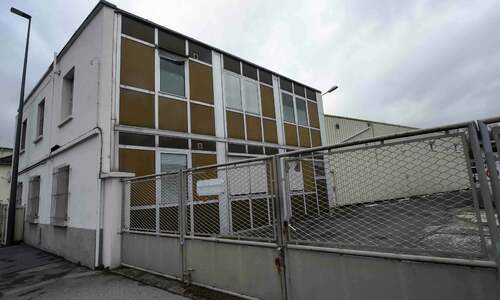PARIS: French ruling party lawmaker Pascal Bois was at home asleep a few days after Christmas when firefighters banged on his front door to tell him his garage was in flames.
Startled by the noise in the early hours of the morning, Bois stumbled out of bed and went to inspect the damage, seeing the outside structure consumed by fire with his electric vehicle inside.
“I realised very quickly that it was a deliberate act,” said the married father of two, who had been on alert after receiving a bullet in the post in November. “There’s a moment of shock, of course, but I got over it fairly quickly and did my best to keep calm.”
As well as the fire, graffiti had been daubed on the outside wall of his home in Chambly, 35 kilometres from Paris, saying: “No to the pass” and “It’s going to explode”.
The attack came as parliament was debating legislation to create a mandatory “vaccine pass” that meant only people jabbed against Covid-19 could enter bars and restaurants.
Bois, along with other members of parliament from President Emmanuel Macron’s Republic on the Move party, was in favour.
With France less than three months from the first round of presidential elections, to be followed by parliamentary polls in June, concern is growing about an increase in attacks against elected figures, particularly ruling party lawmakers.
Explanations range from the radicalisation of the anti-vax movement and a long-term trend of declining faith in the French democratic system to Macron’s policies and personality.
Increased protection
Since the attack on Bois’ home and a separate assault on an overseas island lawmaker who was pelted with seaweed on his doorstep, Interior Minister Gerald Darmanin has ordered greater police protection for parliamentarians.
In addition to the physical attacks, anonymous death threats in writing or over social media have exploded in numbers.
In the first 11 months of 2021, a total of 1,186 elected figures including 162 lawmakers lodged complaints for threats made against them, a rise of 47 percent compared with 2020, interior ministry figures show.
“Unfortunately over the last few years, there has been an increase in offences against elected figures,” Darmanin told RTL radio, adding that anti-vaxxers were lately responsible for “huge numbers of complaints about threats”.
A recent survey showed that, for a significant minority of French people, such offences were justified.
In a poll published by the Jean-Jaures Foundation think-tank in November, more than one in ten people said they approved of “violent behaviour towards lawmakers and their staff, at their offices or homes”.
A total of 40 percent of people thought that the directly elected lower house of parliament was of “little use” or “no use at all” — a huge increase from a comparable study in 1985 that showed only 13 percent felt this way.
Last Tuesday, all the heads of the main political parties in parliament entered together along with the speaker Richard Ferrand in a rare show of unity to denounce what they called “the rise in hatred.”
Published in Dawn, January 22nd, 2022














































